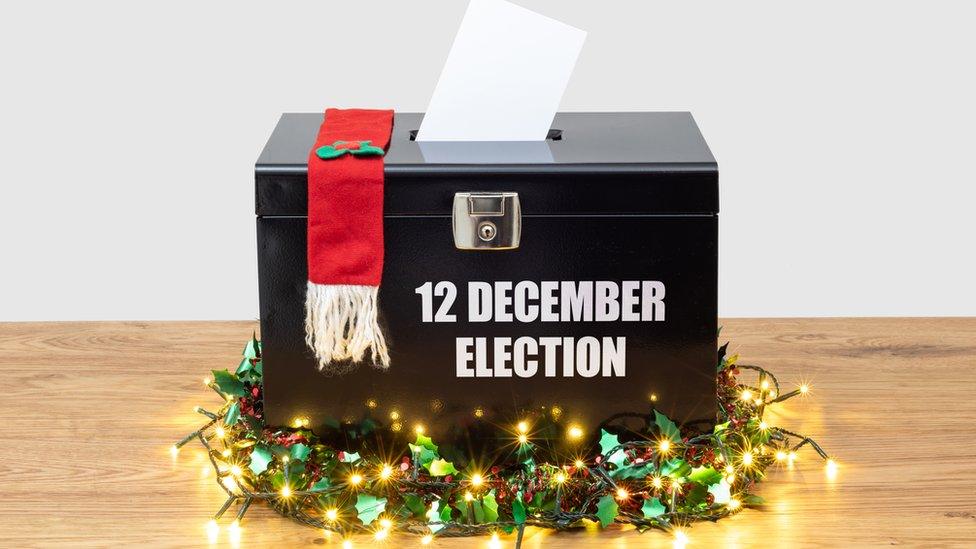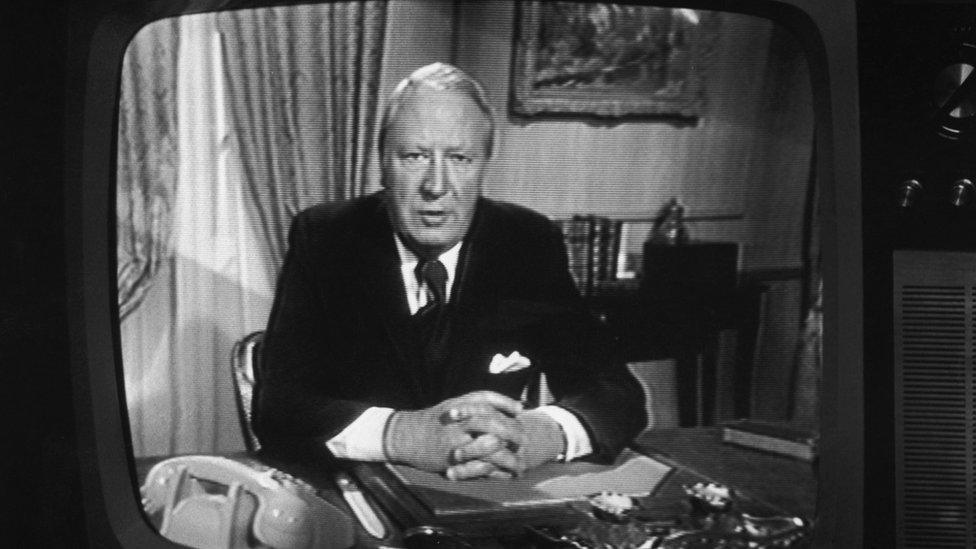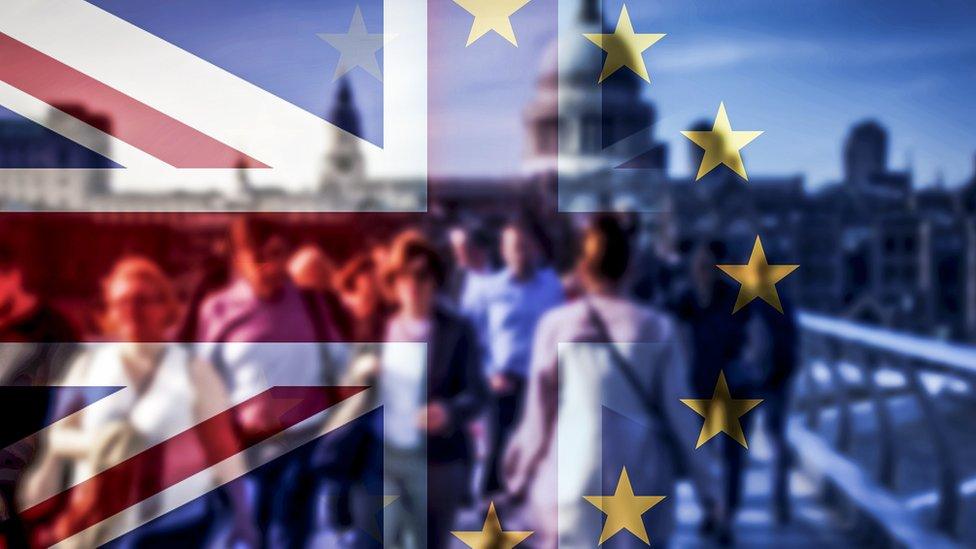As polling day nears, fear stalks the Midlands
- Published

We're not entirely sure what this election is all about
All that's certain is uncertainty
I have never known a general election like this one.
It's not just because it's in the winter, although that is strange enough. Nor because we're not entirely sure what it's all about, Brexit? The NHS?
I remember when the Conservative Prime Minister Edward Heath called an election in 1974 which he said was about who should run the country, his government or the striking miners?
He chose the slogan "Who Governs?" The electors duly replied "not you, Ted" and returned Harold Wilson's Labour Party to office, first as a minority administration and then with an overall majority after a second election later that year.
No, what really marks this election apart from the others is that at this late stage in the campaign, in the week before polling, I have never known a time when behind the scenes both main parties have been quite as terrified as they are now.
Usually one of them is exuding a quiet confidence by now, based on well-founded, or ill-founded, polling information.

Edward Heath lost a 1974 election after asking, 'who governs?'
Conversely the other campaign has usually by now begun mutating into something more like a damage limitation exercise than a bold plan of action for government.
This time, though, my own soundings suggest both our biggest parties are in panic stations.
After last week's YouGov poll suggesting Labour might lose about 10 seats in the Midlands, mainly in those Leave-voting areas around the Black Country and north Staffordshire, Labour have been forced to deny reports that they are refocusing their campaign to give a bigger role for Brexit-supporting members of the shadow cabinet.
While the Conservatives, still scalded by the collapse of Theresa May's poll lead before the last general election, are fretting that something like that may happen again.
The Tories may enjoy a sustained, though inconsistent, lead in the polls, but there are signs Labour have been gaining Remain supporters who may be giving up on the Liberal Democrats in favour of Labour as the least worst of the principal options.
So which of them is right?

How will the issue of Brexit shape voting in Leave areas?
The answer could be neither of them. Or both.
My hunch is that Labour have reason to be fearful about the voting, or non-voting, patterns in the big Leave areas where the Brexit Party accuse Labour of "betraying five million voters".
There may be no great love on display for the Brexit Party in these areas but that does not mean electors don't buy its arguments.
The Conservatives must not underestimate the scale of the challenge they have set themselves to ask voters in the likes of Stoke-on-Trent, West Bromwich and Wolverhampton to break the habit of several lifetimes by allowing Boris Johnson's oft-stated promise to "get Brexit done" to trump the concerns about the NHS in particular and austerity in general.
I also suspect that we shall see some very different answers between one constituency and another: my recent blogs have explained why we should treat the polls' predictions of uniform swing with extreme caution.
This could turn out more like a series of by-elections than one single, coherent, joined-up campaign.
The interplay between an unusually large number of parties and the vagaries of Brexit's interaction with the other issues merely adds to the general air of unpredictability and nerve-jangling uncertainty.
Sunday Politics Midlands
It's all shaping-up for our final programme before polling day to be an absolute humdinger.
Live on BBC One HD as well as BBC One West Midlands, I'll be joined by leading candidates from each of England's three main parliamentary parties.
We are scheduled to start as usual at 10.00, but during the campaign the Andrew Marr Show, just before us, has had such a full agenda that it has been extended until 1015. So keep your eyes on the TV listings.
Remember you can watch it either live as it happens on Sunday 8 December 2019 or later via the BBC iPlayer.
